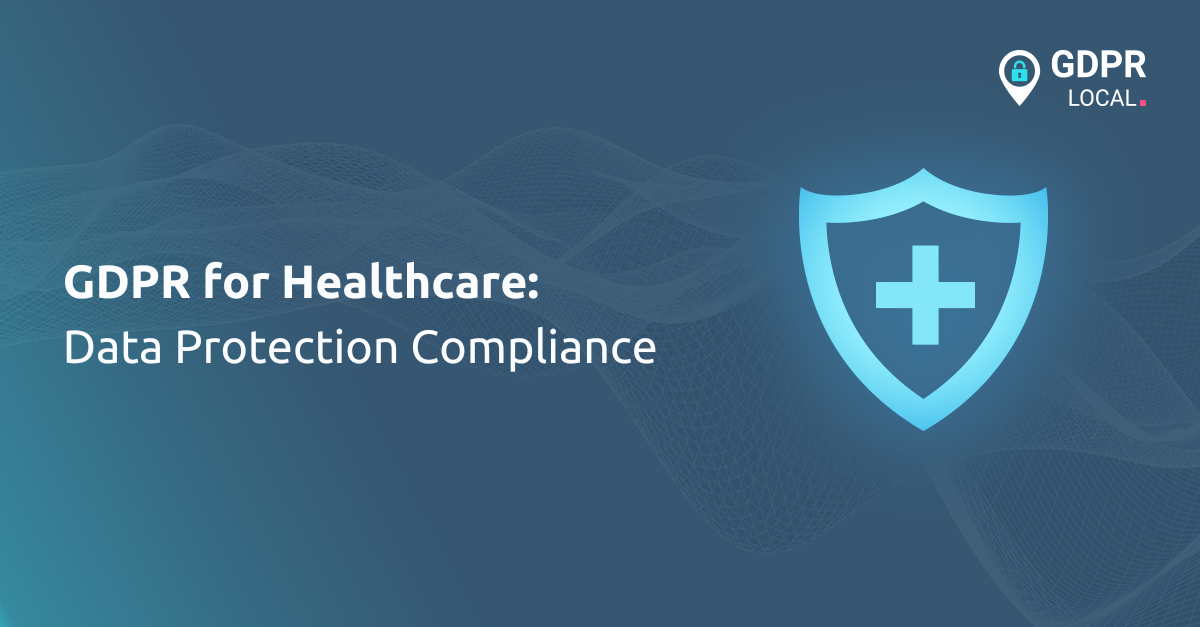
GDPR Considerations for Healthcare: Data Protection Compliance
Updated, June 2025
In a time where vast amounts of personal data are being collected and processed, the need for data protection measures is more crucial than ever, especially in the healthcare industry. With patient privacy and data security at the forefront, organisations in the healthcare sector must navigate the complexities of GDPR. This framework governs the protection and privacy of personal data in the European Union (EU). In this article, we will explore the key considerations and implications of GDPR for the healthcare industry.
Key Takeaways
Stricter Regulations for Health Data: Under GDPR, health information is classified as a “special category” of personal data, necessitating the highest level of protection. Healthcare organisations must adhere to stringent measures for collecting, storing, and processing this sensitive information.
Comprehensive Compliance is Mandatory: The article emphasises that healthcare organisations must proactively integrate “Privacy by Design,” obtain explicit patient consent, and limit data use to specific, consented purposes. This includes establishing clear procedures for data subject rights, such as access and erasure, and conducting Data Protection Impact Assessments (DPIAs) for high-risk processing activities.
Severe Penalties and the Need for Expertise: Non-compliance with the GDPR can result in substantial fines of up to €20 million or 4% of the company’s global annual turnover. Given the complexity of the regulation, the article emphasises the importance of seeking expert guidance and implementing comprehensive solutions to ensure ongoing compliance, including staff training and incident response planning.
Understanding GDPR and Its Impact on Healthcare
What is GDPR?
The General Data Protection Regulation (GDPR) is a set of regulations implemented by the EU to protect the rights of individuals regarding their personal data. Therefore, it applies to organisations that process the personal data of individuals residing in the EU, regardless of the organisation’s location.
Health Data as a Special Category
Under GDPR, health data is considered a special category of personal data, demanding even stricter protection measures than other types of personal data. Health data includes any information related to an individual’s physical or mental health, genetic data, and biometric data. Healthcare organisations must be particularly vigilant in understanding how they collect, store, and process such sensitive data.
The Implications of GDPR for Healthcare Organisations
The GDPR has far-reaching implications for healthcare organisations, irrespective of their location.
Organisations must implement data protection measures, obtain explicit consent for processing, maintain patient information confidentiality, and promptly notify individuals and authorities in the event of a data breach. Non-compliance can result in severe penalties, including fines of up to €20 million or 4% of global annual revenue, whichever is higher.
Key GDPR Requirements for Healthcare Organisations
1. Consent
Under GDPR, healthcare organisations must obtain explicit and informed consent from individuals for the processing of their personal data. Consent must be freely given, specific, and unambiguous, and individuals have the right to withdraw their consent at any time. Healthcare organisations should review and update their consent procedures and documentation to align with GDPR requirements.
2. Purpose Limitation
Organisations can only use personal data for the purposes to which individuals have given their consent. Healthcare organisations must ensure that they collect and process data only for legitimate and specific purposes related to the provision of healthcare services. They should also have mechanisms in place to demonstrate compliance with the principles of purpose limitation.
3. Privacy by Design
Privacy by Design is a fundamental principle of GDPR that requires organisations to integrate data protection measures into the design of their systems, processes, and services from the outset. Healthcare organisations must implement appropriate technical and organisational measures to ensure the privacy and security of personal data. This includes adopting encryption, pseudonymization, and other privacy-enhancing technologies.
4. Data Subject Rights
GDPR grants individuals several rights concerning their personal data, including the right to access, rectify, erase, restrict processing, and object to the processing of their data. Healthcare organisations must establish procedures to respond to these requests promptly and efficiently, ensuring individuals can exercise their rights effectively.
5. Data Breach Notification
In the event of a personal data breach, healthcare organisations must notify the relevant supervisory authority within 72 hours of becoming aware of the breach. Additionally, they must inform affected individuals without undue delay when the breach is likely to result in a high risk to their rights and freedoms.
Implementing incident response plans and security measures can help organisations mitigate the impact of data breaches and ensure timely notifications.
6. Data Protection Impact Assessments (DPIAs)
DPIAs are a crucial aspect of GDPR compliance for healthcare organisations. They involve assessing the potential risks and impact of data processing activities on individuals’ privacy rights. Healthcare organisations must conduct DPIAs for high-risk activities, such as the adoption of new technology, large-scale health data processing, or systematic individual monitoring.

Navigating GDPR Compliance with GDPRLocal
Achieving and maintaining GDPR compliance can be a complex and resource-intensive task for healthcare organisations. It requires a deep understanding of the regulations, ongoing monitoring of compliance measures, and the implementation of appropriate technical and organisational protection.
Expert Guidance and Support
We offer guidance and support to healthcare organisations, helping them understand the specific GDPR requirements for the healthcare sector. Our team of experienced professionals can assess an organisation’s current data protection practices, conduct gap analyses, and develop tailored compliance strategies.
Comprehensive Compliance Solutions
We provide comprehensive compliance solutions, including data protection assessments, policy development, data subject rights management, data breach response planning, and ongoing monitoring and support. Our solutions are designed to address the unique challenges faced by healthcare organisations and ensure compliance with GDPR and other relevant data protection regulations.
Continuous Monitoring and Updates
We stay abreast of the evolving regulatory landscape and provide healthcare organisations with regular updates on any changes or new requirements. Furthermore, we offer continuous monitoring of compliance measures, ensuring that healthcare organisations remain up to date and can adapt their processes and policies accordingly.
Training and Education
Our training and education programs help healthcare organisations build a culture of data protection awareness among their staff. The training modules cover key GDPR concepts, data protection best practices, and the specific requirements for the healthcare industry.
Conclusion
By partnering with us, healthcare organisations can navigate the complexities of GDPR, leverage expert guidance and support, and ensure comprehensive data protection compliance. In the healthcare industry, prioritising data privacy and security, adopting GDPR, and collaborating with trusted partners can bolster trust, improve patient relationships, and safeguard sensitive health data in our digital era.
Frequently Asked Questions (FAQs)
1. What makes health data different from other personal data under GDPR?
Under GDPR, health data is considered a “special category” of personal data because of its sensitivity. This includes any information related to an individual’s physical or mental health, genetic data, or biometric data. This special status means it requires more robust and explicit protection measures than other types of personal data, and organisations must have a specific legal basis for processing it.
2. What are the primary responsibilities of a healthcare organisation in the event of a data breach?
If a personal data breach occurs, a healthcare organisation must notify the relevant supervisory authority within 72 hours of becoming aware of it. Furthermore, if the breach is likely to pose a high risk to the rights and freedoms of individuals, the organisation must inform the affected people without undue delay.
3. What does “Privacy by Design” mean for a healthcare organisation?
“Privacy by Design” is a core GDPR principle that requires healthcare organisations to embed data protection measures directly into the design of their systems, services, and internal processes from the outset. This proactive approach involves implementing technical and organisational protection, such as encryption and pseudonymization, to ensure that patient privacy and data security are fundamental components of their operations, not just afterthoughts.